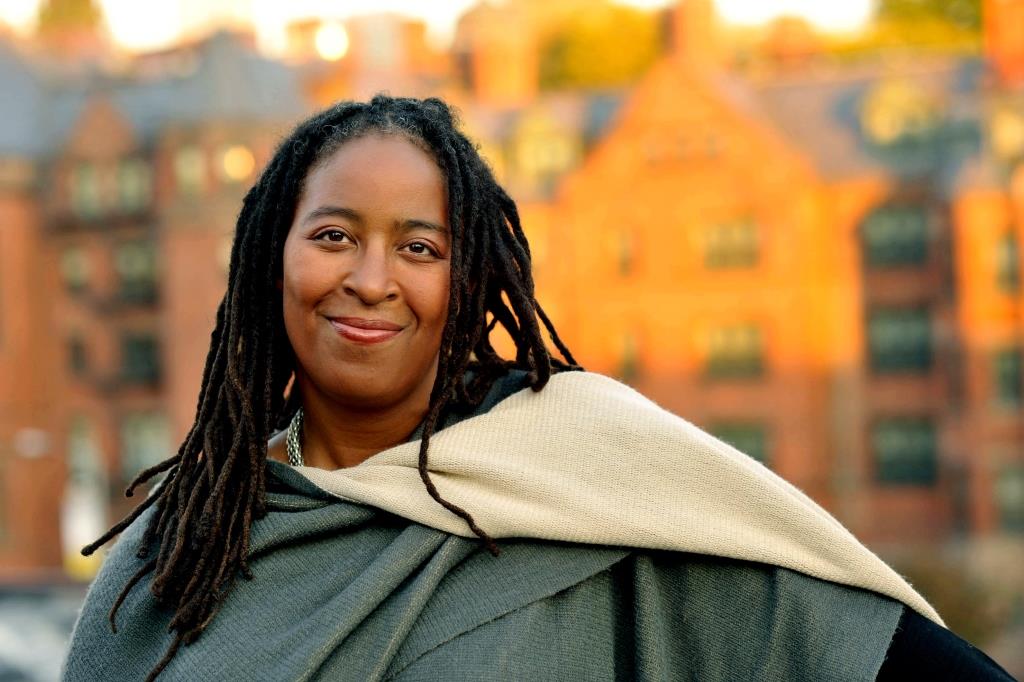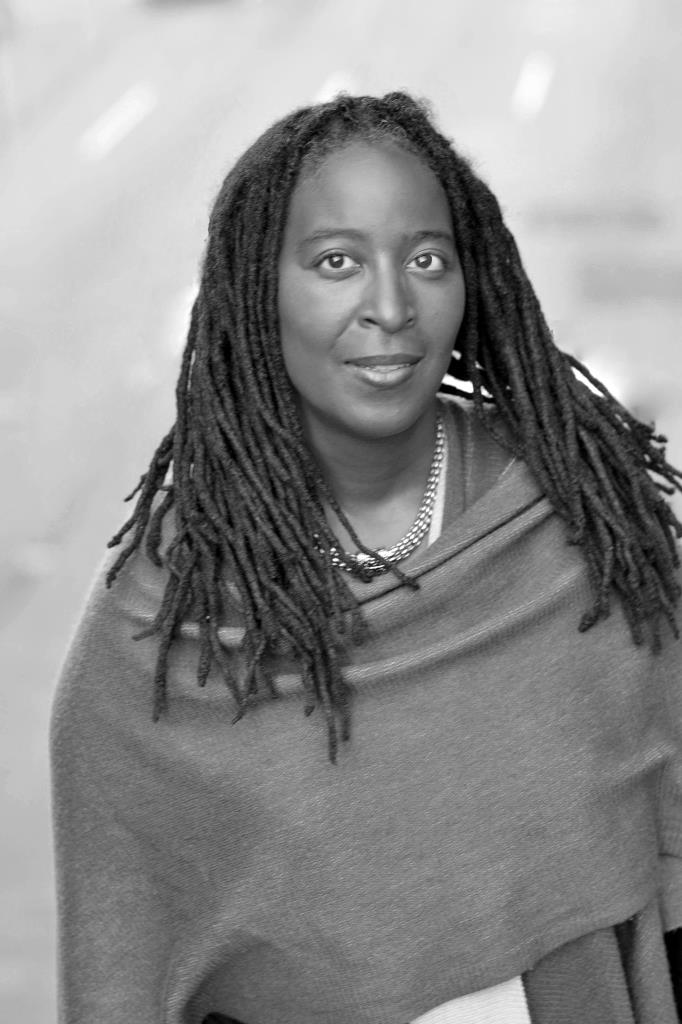Camille Dungy is author of Smith Blue (Southern Illinois University Press, 2011), winner of the 2010 Crab Orchard Open Book Prize, Suck on the Marrow (Red Hen Press, 2010), and What to Eat, What to Drink, What to Leave for Poison (Red Hen Press, 2006).
Dungy is editor of Black Nature: Four Centuries of African American Nature Poetry (UGA, 2009), co-editor of From the Fishouse: An Anthology of Poems that Sing, Rhyme, Resound, Syncopate, Alliterate, and Just Plain Sound Great (Persea, 2009), and assistant editor of Gathering Ground: A Reader Celebrating Cave Canem’s First Decade (University of Michigan Press, 2006). Dungy has received fellowships from the National Endowment for the Arts, the Virginia Commission for the Arts, Cave Canem, the Dana Award, and Bread Loaf.
She is a two-time recipient of the Northern California Book Award (2010 and 2011), a Silver Medal Winner in the California Book Award (2011), and a two-time NAACP Image Award nominee (2010 and 2011). She was a 2011 finalist for the Balcones Prize, and her books have been shortlisted for the 2011 Foreword Magazine Book of the Year Award, the PEN Center USA 2007 Literary Award, and the Library of Virginia 2007 Literary Award. Recently a Professor in the Creative Writing Department at San Francisco State University, Dungy is now a Professor in the English Department at Colorado State University. Her poems and essays have been published widely in anthologies and print and online journals.
~Bio excerpted from Camille Dungy’s website
Faculty Profile: Camille Dungy
by Denise Jarrott
How would you describe your work in the English Department?
I teach creative writing and literature classes, mostly focusing on poetry. Right now I’m teaching a poetry writing workshop and a course on Recent US Poetry. Over the course of the semester, seven poets will visit our class either in person or via teleconference. We’re all looking forward to the chance to speak directly with some of today’s hottest authors.
What brought you to CSU?
I am excited about the university’s commitment to serving the students of the state of Colorado. I’ve been away a long time, but I’m actually a Colorado native, and I am happy to be a part of keeping this a vibrant place. I am also thrilled by the engagement of so many of my colleagues in questions directly related to the environment and sustainability as well as history, family, and great literature.
What do you enjoy most about your work?
I am happy every day that I am able to wake up and think about what I love best: good writing.
Why do you think English and the Humanities are important? English and the Humanities teach us to think critically, to read carefully (and not only text on the page), and engage empathy. In short, English and the Humanities help form the rudimentary components of engaged citizenship.
What inspired you to pursue a degree in English and teaching?
Why not do what I love?
What had the greatest influence on your career path?
I was raised in a house that valued books, that valued education, and that valued compassion. My education also supported these interests, and so here I am, passing those values along.
What did you want to be when you were a kid?
A writer. (And also a doctor and a piano player and an athlete and probably a lot of other things. Good thing all those pursuits, which require focus and practice and attention to detail, supported my main goal of learning how to be a better writer).
Describe your experience on your recent sabbatical and how you will bring what you learned during that time to CSU.
I did take a leave last semester to write, and I traveled to Alaska, California, London, Paris, and Seattle in pursuit of my subjects. The love of travel, the engagement with a world that is larger than our neighborhoods (but also amazingly smaller: I met a woman in Barrow, Alaska who had met her husband at restaurant 2 blocks from the restaurant where I met my husband, and when I was in Paris I had lunch with a friend from the States) helps me to read the world better. Reading the world better helps me read books better. Reading books better helps me write and teach books better.
What moment in the classroom stands out as most memorable?
I have been teaching full time since 1997. If I had one most memorable moment it would diminish the many other wonderful (and sometime challenging) moments I’ve had in all those years in the classroom.
What is your favorite thing about teaching?
I love talking about what I love to people who are open to the possibility of learning new things about themselves and the world.
What advice would you give a student taking classes in the English department? Be open to the possibility of learning new things about yourself and the world.
What is the best advice you’ve ever received?
As a person who is open to learning new things about myself and the world, I get advice all the time. I’ve to categorize this advice in terms of its relevance to me, but I’ve also learned to revisit advice because things that don’t seem relevant on Day 1 might be really useful on Day 121.
What accomplishments are you most proud of?
I’m raising a daughter who is smart and self assured and kind to others, and that makes me quite proud. I also have published several of my own books and edited anthologies that represent a wide range of voices, and that these words are out of my head (where so many of our ideas linger) and in the world makes me quite proud. But, I don’t tend to dwell too much in pride. Every day is a new day, and each new day requires more writing, more parenting, more living actively in the world.
What is the last great piece of writing you read? What are you currently reading?
I read for a living. I read all the time. Two days ago I would have told you the best book I’ve read recently was the book I read two days ago (The White Pages, by Martha Collins), but yesterday I taught and so reread portions of The Apple Trees at Olema by Robert Hass, which is a book I adore, and tonight I have a stack of books on my desk including Yona Harvey’s Hemming the Water and Brilliant: The Evolution of Artificial Light by Jane Brox, both of which I am really excited about.
When you’re not working, what do you like to do?
I love to cook. I love to be outside, hiking or walking or just being. I love to be with my family. I love to read, which is and is not work for me. I am also turning into a bit of a DIY gal, and have a long list of projects for the house (which may or may not ever get done), including building a cold frame and hanging barn doors in a room that needs a divider.
What is your favorite word and why?
Lathe. Just listen to it. A gorgeous word. It’s round and cylindrical, a word that sounds like what it does. Lathe. I love that word.
Which three people, living or dead, would you invite to dinner?
I just had this conversation with someone! I invited Octavia Butler, one of my all time favorite writers (Parable of the Sower and Kindred are my two favorite books). Also Mary Wollstonecraft Shelley because I am amazed by the mind that invented Frankenstein while pregnant (which, I think, is fascinating enough even without the fact that the book itself is a marvel). And maybe…the third person is always the tricky one…perhaps my maternal grandmother, who I believe would get a kick out of meeting those women and who would be glad to teach them a thing or two and maybe recite some poems.

